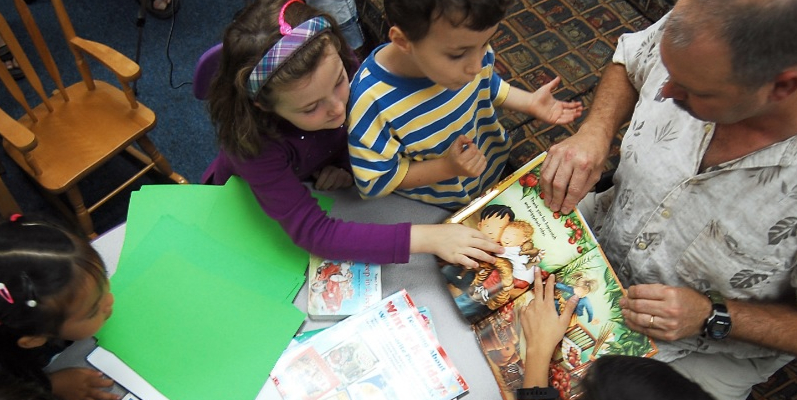I’ve spent the last five years as an instructional facilitator working from central administration to support elementary campuses in our district. This past June I requested a transfer back to a campus to work as an instructional coach.
Getting back to working day in and day out with teachers and students was the best decision I’ve made in a long time for my continuing professional growth. One important benefit I knew I’d experience was learning from the amazing principal and assistant principal on my new campus.
My almost 30 years in education have given me a chance to observe a lot of campus administration teams—the good, the bad and the ugly. In the few short weeks that I’ve been on this campus I’ve seen some “on fleek” moves that I’d love to recommend to rookie and veteran campus administrators alike.
Commit to high expectations for learning and for behavior
Articulate often the importance of high quality initial instruction and the importance behavior has on learning. Just this week our principal reminded the staff in an email memo that “our #1 focus is first time teach and capturing 85% mastery with that teach.”
There is also a clear commitment on our campus to consistent behavior expectations regardless of where students are on the campus. We had a safety drill on Friday and the entire student body (750+ students) adhered to our CHAMPS expectation of level zero conversation during the drill. It was an amazing thing to watch. That starts at the top, folks.
Our principal ends the morning announcements each day by saying, “Remember that you are responsible for your learning and you are responsible for your behavior today.”
Know your people
I’ve been impressed at how well the principal and assistant principal on this campus know the staff. They know details about their families, hobbies, personal accomplishments and professional experience.
Years ago Gary Chapman wrote a book about the Five Love Languages (a book for couples on how to make love last). It’s almost as if the principal and assistant principal have created their own version of Love Languages for teachers.
In conversations about how I can support our staff, I’ve heard things like, “Mrs. S thrives on verbal feedback about her students’ learning” or “Mr. D is new to our campus, but we’ve noticed he appreciates you dropping by to see how things are going. He doesn’t need a lot of support, but likes it when you visit to check out the learning.”
Knowing your staff and the type of “love” they need most is critical to fostering a caring, competent community.
Make the big stuff the big stuff
Already a handful of things have happened on the campus with teachers, schedules, student behavior and I’ve watched waiting for the drama to unfold. No drama here—just a cool-headed approach to doing what’s best for teachers and students and a reminder of the things that genuinely matter.
At the start of school our beloved workroom supervisor was out sick and the principal and assistant principal made copies, laminated posters and helped to prepare resources for teachers.
During a staff meeting the principal said, “You guys know that I’ll buy copy paper, cardstock, laminating film to make sure you have what you need. I’ll never make a big deal about purchasing those items, but I’d like to make clear my expectations once again about the quality of learning tools we use with our students. Some of the things I’ve copied this week are worksheets that don’t promote any kind of authentic learning. I’m going to be honest—I’m embarrassed at some of the things teachers placed on order to copy. If those items came home in my own girls’ backpacks, as a parent I’d question how the learning time was being used here on our campus.”
Number of copies? Not a problem. Quality of instruction and learning for our kids? That was worth her time as the principal to clearly restate her expectations. That’s a leader I want to follow.
Do the hard work
I’ve been in situations before where leaders had high expectations for everyone but themselves. That makes following the leader a bit tricky. On this campus where I am now the principal and assistant principal are consistently right in the thick of the hard work.
Every morning our principal is outside directing traffic and helping kids safely into the school building and again in the afternoon she’s back outside getting kids into cars to go home. When it’s 3:15, she tells the staff to return to their classrooms and she and our assistant principal finish up dismissal. They value the time that teachers have to prep and get ready for the next day and they take over to free teachers up to do that important work.
This week we had a safety drill that required the entire campus to participate. Our assistant principal was there the entire time. It was a hot and muggy day, there were a lot of kids to move through the safety drills outside and I’m sure she had a mountain of work waiting for her. In those moments during the drill she acted as if this were the single most important and (surprisingly) enjoyable thing she could be doing.
On occasion let go of the status quo
When teachers returned this year our building was freshly painted and had new carpeting installed throughout. That meant teachers had boxes and crates with their classroom items needing to be unpacked and put right for the start of school. The principal and assistant principal scheduled the first few days back for unpacking. Other staff around our district were involved in day-long trainings those first few days. My friends across the district commented they couldn’t believe we weren’t doing the same on our campus.
Our campus administration knew that any training that we might do while teachers were anxious and worried about setting up their rooms would be futile. Once the unpacking was done, we had our training days. They were much more effective once teachers “immediate” needs were met.
Know how to have fun
Before I was assigned to this campus I enjoyed seeing crazy pictures on social media with the fun things the staff on this campus did throughout their school year. Last June, due to the building renovations, the staff had their end of year training days in a room at our central admin complex. Throughout the day I could hear the laughing, music and friendly competitions going on.
The campus administration works hard to make meetings fun as well as productive. Somehow they were able to pull off analyzing campus data with a format of karaoke performances to end their day of training. That’s smart planning.
At our beginning of year trainings in August, the principal called out names for door prizes throughout the day. The prize? A comfy full-sized office chair for the teacher to take back to the classroom. The squeals of delight throughout the day as well as the anticipation of who would win helped make the day actually enjoyable.
Protect your people
Our two campus leaders both have young families. I hear them say often that some of our most important work happens between 8:00-3:00. They also say the other critical work we do begins at 3:40 when it’s time to go home to our families.
There is a strong commitment to keeping the after-school hours free for our staff to replenish and get re-charged to return the next day. We are constantly encouraged to get our work done and get out the door. That makes for a healthy (mentally and physically) work environment.
Give genuine feedback
Every day I hear evidence of what John Hattie describes as highly effective feedback from my administrators. The most effective feedback for students is corrective and informative in nature. It focuses on process and self-regulatory behavior. This type of feedback empowers the individual to reflect and move forward with a plan for success. It’s the same type of honest, genuinely helpful feedback I hear our administrators give to our faculty daily.
Trust your staff
The principal and assistant principal are masters at clearly articulating our campus mission and their expectations for instruction and learning. There is no confusion about our learning community priorities.
I have watched closely waiting for the micro-management to commence. It has yet to happen.
Expectations are clearly stated. Appropriate support is available. The staff is released to do their best work. The principal, assistant principal and instructional coach (that’s me) are in classes to observe and support all day every day, but teachers are trusted to be the committed professionals they are. No micro-managing here.
Honor students’ families
I’ve watched these few weeks as both of our campus administrators interact with parents and family members of our students. They are patient and respectful.
This week I was part of a conversation about how we can support a particular student with behavior interventions. The principal emphasized how critical it was for us to fully support the child and the single parent caring for this student. “This dad is doing the best he can raising four boys by himself under really difficult circumstances. Let’s make sure we’re doing everything we can to not add to his already very challenging job of parenting.”
Wow! Instead of placing blame on a parent for their child’s behavior at school, I heard a commitment from the leader on our campus to do our very best to support the whole family and not complain about the hardship it is on us when behavior issues arise.
The two women who lead our campus are not perfect. They are, however, incredibly intentional about tenets of leadership. That benefits our kids, our teachers and our families.
I have so much more to learn from them and I’m one eager student.










